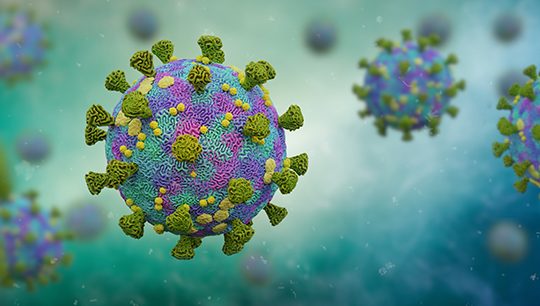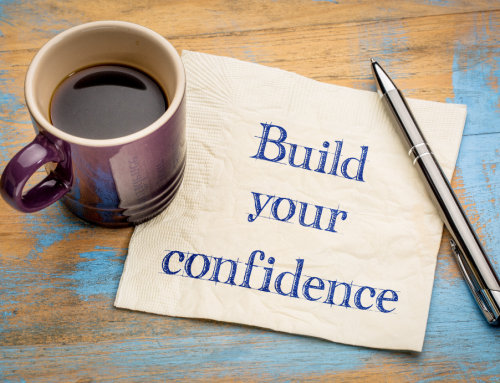There is no getting away from it, COVID-19 is very real, and it seems that it might be here for a while. If you are like me, you are probably beginning to feel overwhelmed with all the facts and data.
Here I will share some of the things that we do know about this coronavirus and provide some simple recommendations to take preventative measures against being impacted by the disease, COVID-19.
What is SARS-CoV-2 and COVID-19?
SARS-CoV-2 is the name given to this coronavirus which seems to be running (or ruining?) our lives at the minute. It causes a disease called COVID-19 which mainly affects your lungs, causing a cough, fever, shortness of breath and in worsening cases, difficulty breathing, pneumonia and sepsis.
It isn’t the first time we have come across coronaviruses, as the world had outbreaks with SARS (severe acute respiratory syndrome) and MERS (middle east respiratory syndrome) previously, which were also coronaviruses. These coronaviruses caused respiratory tract symptoms as well but caused more deaths percentagewise in the people they infected. Unlike SAR-CoV-2, the earlier coronaviruses did not spread that easily, so they were simpler to control, whereas, the coronavirus of 2019 has unique capabilities in its transmission, slyly infecting healthy people who show no symptoms so it can be spread to those who are most vulnerable.
The coronavirus is an RNA virus, which means unlike DNA which has two strands of genetic material, it has one single strand. In order to flourish, it needs to enter your cells – so it hides itself in a cleverly made envelope, which in the case of the coronavirus looks like a crown. Hence, the name coronavirus, as corona means crown in Latin.
The coronavirus is essentially a thief – when it enters your cells, it uses your cells’ own enzymes and energy resources to replicate and assemble itself.
Who is most at risk of COVID-19?
Based on the current data, age seems to be the biggest risk factor in having the more serious symptoms of the disease which can lead to pneumonia and sepsis. Sepsis is the result of the body’s overwhelming response to infection, which can lead to organ failure and tissue damage.
There is no conclusive evidence on why older people are more likely to be impacted by the coronavirus, but one theory suggests it is related to the build up of ‘oxidative stress’ in older people, which fires up the immune system.
Oxidative stress may occur when a person has a high toxic load. A high toxic load can be caused by the following:
- exposure to food and airborne pollutants,
- consuming more than the recommended amount of alcohol,
- having a high viral load due to past infections,
- being chronically stressed mentally, and
- not getting enough sleep.
- As you will have noticed, these factors are all part of a western lifestyle.
Other risk factors that have been indicated are having diabetes and high blood pressure, as well as underlying lung disease and those who are immunodeficient – either due to drug treatments or by having an immune-related disease.
What does this mean for those with autoimmune disease?
As those who suffer with autoimmune disease generally have an impaired immune function, it is postulated that they may be more likely to be impacted by the more severe version of the disease. There is not enough evidence to confirm that this is true of previous cases, but this is the current theory based on the understanding of COVID-19.
Also, many autoimmune disease sufferers are taking either TNF inhibitors or steroids which modulate or suppress the immune system. This might make them more susceptible to the virus as their first line of defence is down, allowing the virus to penetrate where it can do more damage. For those who are on these drugs, please don’t panic! If you are concerned or have symptoms, talk to your GP or healthcare practitioner about what is best to do. Coming off drugs that have been prescribed to you to help with chronic illnesses could be riskier than being infected by the coronavirus.
What preventative lifestyle measures can you take now against coronavirus?
I have seen lots of fancy diets being recommended and many articles on ‘immune-boosting’ supplements, but the simplest, most cost-effective and easily accessible defence against the coronavirus is sleep and stress management.
I understand for those who are on the front line such as the NHS and teachers, it might not be as easy to access these two natural resources. However, setting aside even 15 minutes a day to meditate using an app such as ‘Calm’, shutting off the news and visioning your new bright future after this ordeal are great ways to feel more at ease.
For many of us, we are travelling less and at home for most of the time, so there may be the opportunity to get more sleep. I know many of us are using this as a chance to set new goals and catch up, but really, if you can, try and rest too. Sleep is when our immune systems restore and, most importantly, when the immune cells that regulate our system are produced. Regulation of the immune response may be a key factor in preventing the severe onset of COVID-19.
In addition, eat a nutrient-dense diet, go outside and do some gentle exercise daily and, if possible, eat within a 12-hour window. These are all healthy habits that are thought to increase lifespan and put your body in a healthy state, so it is ready for any challenge.
Of course, not getting the virus in the first place is the best way to prevent yourself from the disease. Physical distancing is the best way to not encounter the virus – you can still socialise with the amazing technologies we have today. So, instead of feeling tempted to speak to your neighbour, set up a Zoom video call up with a group of friends and catch us as you would over a meal.
Also, thoroughly wash your hands after touching any surfaces (especially after touching any packages delivered to you) and clean surfaces in your house with a disinfectant twice a day.
What happens if you start to get symptoms?
If you start to feel weary, and you have symptoms of COVID-19, rest is vital. Zinc lozengers -which are now hard to come by – may also be effective at stopping the virus in its tracks. If you can find some, consider taking a lozenger every 4 hours after the symptoms appear. Omega 3s found in fish oil will also bolster the immune system whilst it is under pressure from the virus. As oxidative stress may also be a factor in the more severe forms of the illness, N-Acetylcysteine (NAC) may help appease the stress in the body (available in supplement form). If you are considering supplementation, it is recommended to work with a nutritionist or health practitioner as they can advise what is right for you.
If you develop severe symptoms, contact the online 111 coronavirus service at 111.nhs.uk (or the equivalent government guidance in your own country).
Try to stay positive
Above all, don’t live in fear for these next few weeks or months that are to come. Anxiety and heightened stress caused by panic of what might happen will weaken your immune system.
Keep some positivity in mind – watch some comedy, catch up with friends and family online and if you do start to feel ill, be cautious and rest.
Do you need some support with your health?
The Autoimmunity Nutritionist clinic provides various online offerings including one to one consultations, health power hours and autoimmune protocol coaching packages. If you are interested, please do get in touch with the clinic.
FOODS TO BUILD THE IMMUNE SYSTEM
What foods should you eat to build your immune system and ensure that your immune cells are sufficiently nourished to protect you? In this article, I will be exploring the foods which support and construct our cleverly composed immune system to keep you supported.





